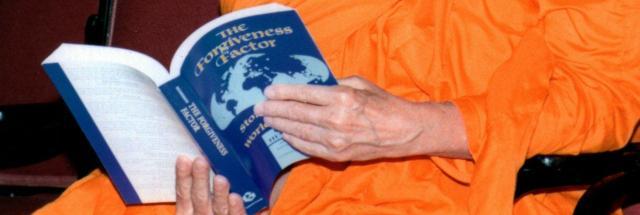KBOO 12 February 1987
When an Indian friend of mine came here as a young rather overawed immigrant many years ago, he was asked at his port of entry by the immigration office, ‘Do you know anybody in this country?’ Not knowing the difference between know and know of, he blurted out triumphantly, ‘I know two people, George Washington and Abraham Lincoln.’
An African ambassador who visited Portland a while back said that his people drew inspiration from Abraham Lincoln. A nationalist Chinese ambassador told me he had founded a Lincoln Society in Taiwan. There is an attractiveness to the life of the 16th president that has inspired foreigners as it has Americans. The great Russian Leo Tolstoy said when Lincoln died that among all the heroes and statesmen of history he was ‘the only real giant.’ And surely the more we today emulate Lincoln’s example the more this country will continue to exert an influence for good in the world – even on Tolstoy’s descendants.
As Jim Wright, now Speaker of the House of Representatives, says, ‘Lincoln belongs to the ages because the virtues upon which his life were founded are timeless. They have been the message of God to mankind since the dawn of history, these are the qualities that make a people great and the neglect of these is the source of evil in the world.’
Unlike many whose stature seems to be diminished over the years, or whose achievements are downgraded by hindsight, Lincoln’s greatness seems to grow. It is hard to believe that in his own time the ‘Baltimore Sun’ wrote, ‘We do not believe the presidency can ever be more degraded by any of his successors than it has been by him.’ Or that Henry Ward Beecher, the most famous preacher of the day, said, ‘Not any spark of genius has he; not an element of leadership.’ Lincoln was almost turned out of office by the peace movement of the day, and his Gettysburg Address was dismissed by the London ‘Times’ with the comment that it would be hard to imagine anything more commonplace.
The bold strokes of Lincoln’s life are as familiar to Americans as the penny and the $5 bill which carry his likeness and the words of some of his immortal speeches. The Lincoln Memorial must be one of the most inspirational shrines in the world. He is honored for having preserved the Union.
Columnist William Safire believes we miss the point, however, if we do not go beyond that recognition to an understanding that in being willing to go to war to uphold majority rule Lincoln preserved democracy. ‘We are a superpower today,’ he writes, ‘not because we are 50 states, but because we are a democracy. We are a democracy, and the last best hope of earth, because we have enshrined majority rule. That is the difference Lincoln made.’
It is not always remembered how much Lincoln had to contend with adversity. He had to cope with sickness and depression, with the deaths of his mother, when he was nine, and later his sister, two sons, his first fiancée: with calumny and ridicule; with the need to go to war and with a cabinet that opposed him and a commanding general who predicted defeat. Yet he responded with a breadth of vision and generosity that are astounding and which have left us with a legacy of stories about him. His humanity, humility and a sense of humor helped him at difficult hours. When someone made fun of his appearance, he said, ‘The Lord prefers common-looking people; that is the reason he made so many of them.’ When he felt he was wrong, he apologized. About one campaign he wrote to General Grant, ‘I wish to make the personal acknowledgment that you were right and I was wrong.’
It was, it is clear, a faith in a divine purpose which sustained him. His advance in faith through the years was as marked as his progression from rude cabin to the White House. He never completed a year of schooling but was to pen some of the most lasting and memorable political and spiritual truths of all time. When he became president he evoked the example of his predecessor George Washington: ‘I cannot succeed without the same divine aid which sustained him and on the same Almighty Being I place my reliance for support.’ In the National Cathedral there is a statue of the President appropriately, on his knees.
Lincoln grew in office into the attributes which later generations were to revere. Speaker Wright characterizes them as those set forth by Christ in the Beatitudes. He was poor; he mourned; he hungered and thirsted for righteousness; he was meek; he was merciful; he was a peacemaker. When the war was finally over there were no humiliating ceremonies of capitulation. There was to be no vengeance. The terms of the surrender were remarkably generous and gentle. Why? Because Lincoln, just hours before his assassination had personally dictated them.
‘My prayer,’ said Wright, ‘is that men and women at all levels of soceity and in every nation will find in Christ the strength and the courage to demonstrate these virtues in the conduct of the affairs of individuals and nations.’
Once when a clergyman said to Lincoln, ‘The Lord is on our side, ‘Lincoln responded, ‘I don’t agree with you.’ After a pause the President said, in words that are a challenge to us today and well sum up his approach then, ‘I am not at all concerned about that for I know that the Lord is always on the side of the right. But it is my constant anxiety and prayer that I and this nation should be on the Lord’s side.’

